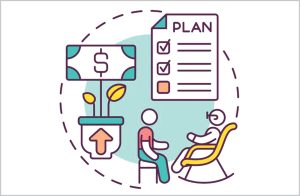Addiction, be it drugs, alcohol, or gambling, is a serious and complex condition that has no easy fix. The disease can cause devastating harm to sufferers, those close to them, and society at large, which means it’s absolutely essential that we fight to help those in need.
Rehab centres provide a vital service and can help addicts get started on the long road to recovery. For those utilising alcohol rehab, these centres are a lifeline that can offer them the advice and guidance they need to overcome their problems and kick the habit. Just what kind of guidance can you expect at rehab? Find out here.
What are Rehab Centres?
Rehab, short for rehabilitation, are healthcare centres where those suffering from addiction can go for treatment. Rehabs cover all forms of addiction, be it drugs, alcohol, gambling, and even modern types such as social media and video gaming addiction.
The most well-known type of rehab is in-patient rehab. These are places where addicts can live as they receive treatment. They are highly secure units where the presence of addictive substances like drugs or alcohol is strictly forbidden.
There are also outpatient rehab centres where patients can visit to receive treatment and then return home each day. However, these are only for addicts who can be relied upon to manage their condition outside of the rehab centre themselves and who do not pose a serious risk of relapsing.
Rehab staff are highly experienced and confident caregivers who are knowledgeable about how addiction works and how it can affect sufferers and their loved ones.
How Does Addiction Work?
To understand what kind of guidance and treatment is available at rehab, it’s important we understand what exactly addiction is and how it works.
Addiction is defined as the compulsive, relapsing use of a substance or performance of behaviour, regardless of the negative effects it might have. Drugs and alcohol are what we most commonly think of when we hear the word addiction, but there are various other things people can be addicted to, such as shopping and overeating.
Our brain’s reward system releases a chemical called dopamine when we perform beneficial behaviours such as exercising. This is a neurotransmitter that makes us feel happy and content, encouraging us to repeat this action again in the future.
Addictive substances and behaviours can mimic dopamine or encourage the brain to overproduce it. This makes sufferers associate these positive feelings with their addiction, driving them to continue.
Over time, the brain becomes desensitised, which means addicts’ tolerance will increase, and they will need to increase usage. In addition, addiction can change how the brain handles negative emotions and decision-making. This causes negative feelings to appear when an addict is not using, meaning they have to use a substance or perform an addictive behaviour just to feel ‘normal’.
Addiction is extremely complex. A combination of biological and environmental factors can make certain individuals more prone to addiction, which makes each case completely unique.
How do rehab centres tackle the complicated nature of addiction and provide care and guidance for patients? Find out below.
Detox
The first stage new rehab patients will go through is known as detoxification or detox. This is the process of ridding the body of addictive substances and attempting to break physical addiction.
Some substances are purely psychologically addictive, and others are a mixture of psychological and physical. Physical addiction occurs when a substance has altered the chemical makeup of the body, with cells requiring the presence of that substance in order to function correctly.
Withdrawal from a physical addiction can be extremely difficult and even dangerous. Withdrawal from opiates such as heroin can cause tremors, gastrointestinal issues, and hallucinations, while withdrawal from alcohol addiction can lead to seizures and even death.
For this reason, detoxing patients must be strictly monitored at all times. Often, they will be weaned off a substance through the use of certain medications to keep them safe.
Therapy Sessions
After detox, the next stage is to break the psychological addiction. This can often be more difficult than breaking the physical addiction and requires in-depth therapy and counselling sessions.
Group therapy sessions can offer patients a chance to connect with and hear from people who are fighting a similar battle. These can be extremely powerful and work to create a sense of togetherness and camaraderie that builds strength and resolve.
Individual therapy sessions are also used. In these sessions, patients will be asked to delve into their past in an attempt to identify the root cause of their addiction. This can be incredibly beneficial and can give them a greater perspective as they move forward in their treatment program.
Addiction relapses are often caused by certain triggers, such as environmental issues or emotional factors like stress. Cognitive behavioural therapy (CBT) helps patients identify these triggers and then teaches them coping skills and mechanisms to work around them and avoid relapsing back into addiction.
Aftercare
Some patients may benefit from a week or two at a rehab centre, while others might need to spend many months there to overcome their addiction.
However, regardless of how long is spent in a rehab centre, the work isn’t over when a patient leaves. Addiction is a life-long condition that requires constant management to stay on top of. Rehab centres will offer patients aftercare once they have left the centre to keep them on the right track.
These aftercare services can come in the form of regular checkups, outpatient appointments, or even reentry into an inpatient program if a serious relapse has occurred. Relapse is common among addicts, so these aftercare services are absolutely crucial.
Conclusion
Rehab centres provide a vital service and are essential as societies aim to tackle the pervasive problem of addiction. As addiction is such a complex and highly individual condition, the guidance and care rehabs provide must be flexible and able to adapt to the unique needs and requirements of each patient. By underdoing detox, therapy, and aftercare sessions, addicts can get started on the road to recovery.














